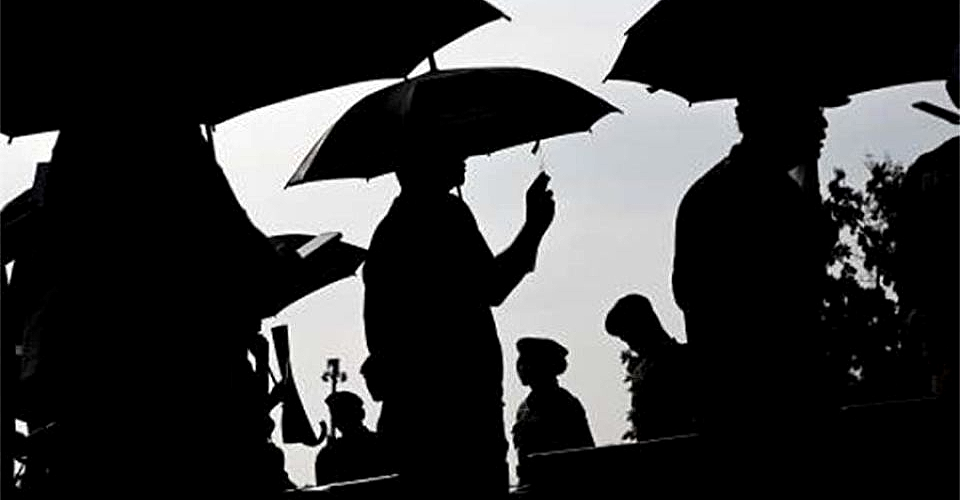Across Southeast Asia, civic space, the vital arena for civil society, independent media and ordinary citizens to voice their concerns and shape public life, is now shrinking at an alarming pace.
Governments across the region are employing increasingly sophisticated and repressive tactics to silence dissent, stifle opposition and suppress independent voices, eroding the democratic foundations upon which just societies are built.
These actions strike at the very heart of democracy, eroding the foundations upon which just and equitable societies are built.
The weaponisation of laws has become the cornerstone of repression.
In Thailand, lèse-majesté laws have been wielded not only against activists, but also against parliamentarians like Chonthicha Jangrew, who was sentenced to two years in prison for peacefully criticising legislation that expanded royal authority.
In Cambodia, opposition parties such as the Cambodia National Rescue Party have been dissolved, and independent media outlets, including Voice of Democracy, have been shuttered under the pretext of protecting national security.
These legal tools do not protect the public, instead they entrench power and foster a climate of fear, eliminating avenues for dissent and public participation.
The Philippines offers another grim illustration. The practice of red-tagging, labelling activists and human rights defenders as communists or terrorists, has facilitated harassment, arbitrary arrests and even assassinations.
Zara Alvarez, a human rights worker, was murdered in 2020 after being placed on a government watchlist, a stark reminder that the Philippine government needs to do more to protect human rights defenders (HRDs).
Meanwhile, the prolonged detention of former Senator Leila de Lima on politically motivated charges reflects the state’s systematic targeting of dissenters.
The situation for HRDs and civil society organisations is equally dire.
In Myanmar, following the 2021 military coup, thousands of activists, journalists and political leaders have been arrested.
More than 4,000 remain in detention, with many subjected to torture, while civil society has been decimated.
In Malaysia, women HRDs like Syerleena Abdul Rashid face not only institutional obstacles, but also direct threats, such as receiving bullets in the mail, for daring to speak out.
Even the digital sphere, once heralded as a tool for amplifying marginalised voices, has become a battleground.
Governments now use digital platforms for surveillance, censorship and disinformation.
In Vietnam, social media activists face relentless crackdowns, with prominent figures like Pham Doan Trang sentenced to nine years in prison for advocating democracy online.
In Indonesia, disinformation during election cycles erodes public trust, distorts democratic processes and provides cover for cyber-surveillance targeting dissenting voices.
The consequences of this shrinking civic space are far-reaching and deeply troubling.
Accountability crumbles when independent media and civil society are suppressed, allowing governments to operate with impunity.
Silencing dissent fosters mistrust and division, weakening the social cohesion necessary for democratic governance.
Progress on critical issues such as climate justice, labour rights and gender equality grinds to a halt when HRDs are unable to function freely.
This repression also reveals the selective application of human rights in Southeast Asia.
Indigenous communities, stripped of legal recognition of their ancestral lands, are displaced by extractive industries with little recourse to justice.
For the LGBTIQ community, criminalisation and societal stigma perpetuate cycles of discrimination and exclusion, rendering them invisible in national and regional dialogues on progress.
These realities expose the moral and practical failings of the region’s approach to human rights.

Parliamentarians have a critical role in reversing these trends. As lawmakers and representatives of the people, they are uniquely positioned to challenge repressive laws and champion policies that protect civic freedoms.
In Malaysia, former MP Charles Santiago has been a staunch advocate for abolishing the death penalty and defending free speech.
In the Philippines, representative Arlene Brosas has consistently championed women’s rights while opposing state-sponsored repression.
Beyond national efforts, parliamentarians must leverage platforms like ASEAN to advocate for stronger protections for civic space and HRDs.
The principle of non-interference must no longer serve as a shield for impunity, particularly in egregious cases such as Myanmar.
Civil society organisations and HRDs are indispensable partners in this fight.
Despite immense risks, they amplify marginalised voices, expose abuses and demand accountability.
However, their survival depends on stronger protections, sustained support and collective action to counter repression.
Reclaiming civic space in Southeast Asia requires bold, coordinated and sustained action. ASEAN must empower mechanisms like the ASEAN Inter-governmental Commission on Human Rights (AICHR) with the authority to conduct independent investigations and hold states accountable for violations.
The digital sphere, too, must be reclaimed as a tool for empowerment rather than repression.
Governments should enact regulations to combat surveillance and censorship while promoting digital literacy to empower citizens in navigating complex digital landscapes.
Inclusive governance must become a regional priority.
Indigenous peoples must be recognised as stewards of their lands and granted meaningful participation in decisions that affect their lives.
The LGBTIQ community must receive full legal protections and representation in public life.
Women must be empowered to lead and make decisions without systemic barriers or threats.
Shrinking civic space is not merely a regional crisis; it is a global one that threatens the core of democracy and human rights.
Southeast Asia cannot afford to continue down this path of repression and exclusion.
The region’s future hinges on its ability to reclaim civic space, amplify marginalised voices and hold power to account.
On this International Human Rights Day, we must commit to reversing this alarming trend.
Civic space is not a privilege reserved for a few; it is a fundamental right for all. It is the foundation upon which just, inclusive and democratic societies are built.
The fight to reclaim civic space demands courage, resilience and solidarity.
Parliamentarians must remain steadfast against authoritarianism.
Civil society must persevere in its advocacy.
Governments must recognise that protecting civic space is not merely a moral obligation, it is essential for sustainable peace and development.
(Rangsiman Rome is Board Member of ASEAN Parliamentarians for Human Rights, APHR, and Thai Member of Parliament.)
ADVERTISEMENT
ADVERTISEMENT








































